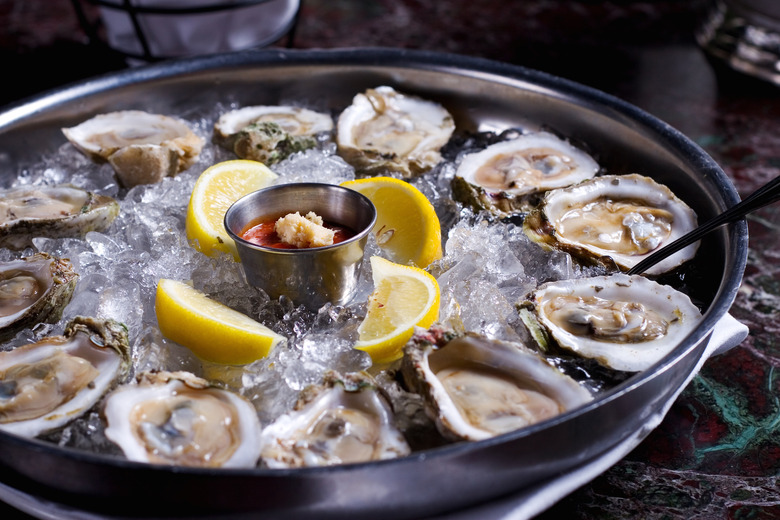Raw Oysters On Recall Due To New Norovirus Outbreak In California
More than 40 restaurants and retailers were advised to stop serving raw oysters linked to a new norovirus outbreak in California. Although the exact source of the outbreak has not yet been identified, an estimated 44 people were reportedly sickened after eating "Sweetwater" and "Atlantic" oysters distributed by Hog Island Oyster Company, Food Safety News reports. Hog Island is one of the West Coast's most-respected oyster producers — the company owns popular oyster bars in San Francisco's Ferry Building Marketplace and in Napa's Oxbow Public Market and supplies many other restaurants.
The World's Biggest Food Poisoning Scares
According to the Centers for Disease Control and Prevention, norovirus is a highly contagious virus spread through contaminated foods and surfaces. Symptoms include vomiting, diarrhea, nausea and stomach pain. It's a leading cause of foodborne illness, but luckily it normally lasts just one to three days and typically doesn't require any sort of medical treatment.
The California Department of Public Health has shut down the company's oyster farming operations in Tomales Bay until the investigation comes to a close. Hog Island locations will remain open and continue serving oysters and shellfish from trusted growers based in Washington state, well outside the affected area .
"This is a temporary situation. Oysters will flush themselves of all viruses," Hog Island said in a release. "We are working with local, state and federal health departments to test and ensure the safety of our shellfish and we will resume harvesting when the bay reopens."
Oysters are highly susceptible to carrying norovirus, but the way they contract it is pretty gross. According to the Washington State Department of Health, it "makes its way into the marine environment through untreated sewage (poop) and vomit." This happens by way of leaky septic systems, faulty waste and water treatment plants, and boaters and beachgoers using the ocean as their toilet. Shellfish eat by filtering water through their bodies to get food floating in it, so when norovirus particles are in the water, oysters end up sucking the virus right in.
To protect yourself from norovirus, the CDC recommends that you practice proper hand hygiene, handle and prepare food safely, clean and disinfect surfaces and wash laundry thoroughly. To be most prepared, make sure you follow all of our tips for avoiding food poisoning.
